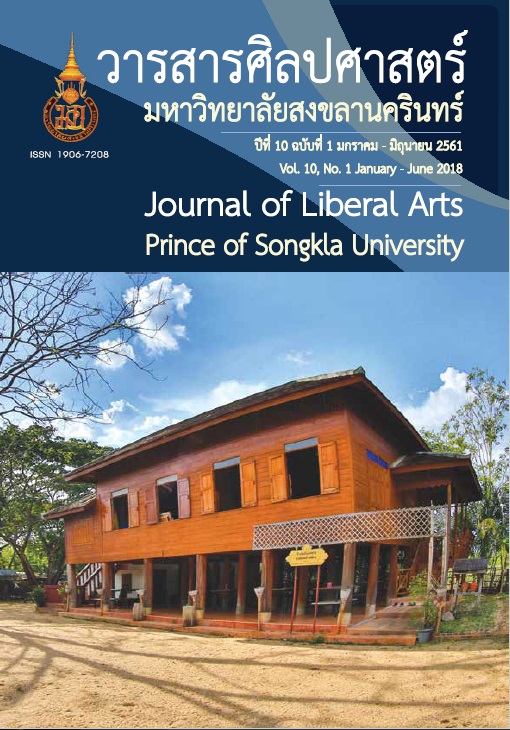Discourse on Facebook website between teacher and students in the Introduction to Linguistics Group
Keywords:
Facebook, discourse analysis, speech actAbstract
The present investigation was the study of the language for communicating on Facebook website between a teacher and students. The objective was to analyze the language forms being used in communication between a teacher and 232 students in the Introduction to Linguistics class group. The data was divided into two parts which were postings and comments delivered from the teacher and students. From the data collection, there were 83 postings and 208 comments. The obtained data were analyzed by using speech acts (Searle, 1979) and stylistics analysis (Joos, 1961; Prasitrattanasinthu, 2002, 2003).
The results of speech act analysis showed that assertive speech acts were found the most among the teacher’s posting while the interrogative speech acts were found the most among the students’ postings.
It revealed that the commissive and directive speech acts were found in teacher’s postings only. Based on stylistics analysis, it was reported that the language styles of the teacher were consultative and casual while student’s language styles were casual and intimate. It was shown that the use of language between the teacher and students still depended on their social status even though their language forms of writing and spelling on this social media may sometimes be informal, differing from standard language. It was suggested that the use of Facebook could be a channel for communicating between teacher and students, but it could neither stimulate the students’ learning nor increase their motivation in learning the course.
References
Halliday, M. A. K. (1995). An introduction to functional grammar. London: Edward Arnold.
Joos, M. (1961). The five clocks: A linguistic excursion into the five styles of English usage. New York: Harcourt, Brace and World.
Mazer, P. J, Murphy, E.R and Simonds, C.J. 2007. I’ll See You On “facebook”: Effects of Computer-Mediated Teacher Self-Disclosure on Student Motivation, Affective Learning, and Classroom Climate. Communication Education., 56(1), 1-17.
Prasitrathsint, A. (2003). Thaksin’s styles: The impressed rhetoric. In Prasitrathsint, A. & Pinthong, C. (Eds.), Learn language, learn politics. Bangkok: Kho Khid Duay Khon Publication. [In Thai]
Prasitrathsint, A. (2002). Language in Thai society: Diversity, change and development. (3rd ed.). Bangkok: Chulalongkorn University Press. [In Thai]
Rambe, P. (2012). Critical discourse analysis of collaborative engagement in Facebook posting. Australasian Journal of Educational Technology, 28(2), 295-3.
Searle, J. R. (1979). Speech acts. Cambridge: Cambridge University Press.
Downloads
Published
How to Cite
Issue
Section
License
The authors retain the copyright to their article but the Journal of Liberal Arts, Prince of Songkla University reserves the exclusive rights to first publication.






